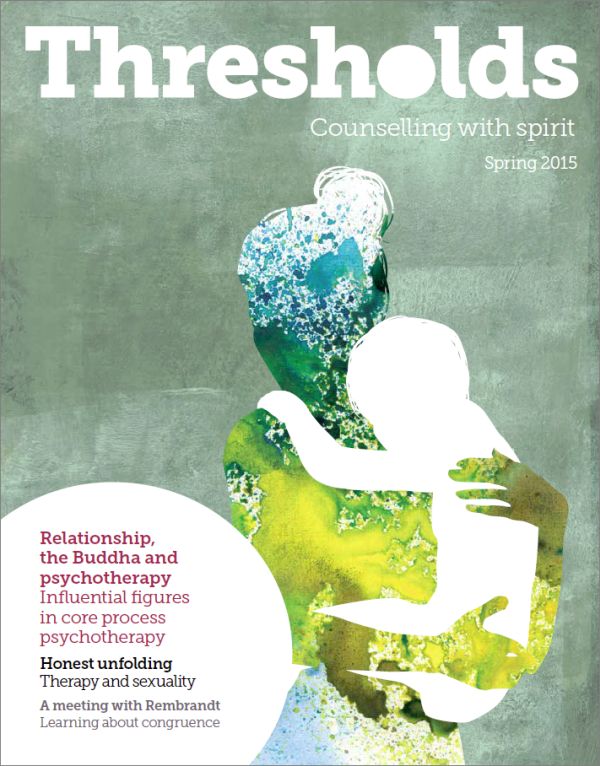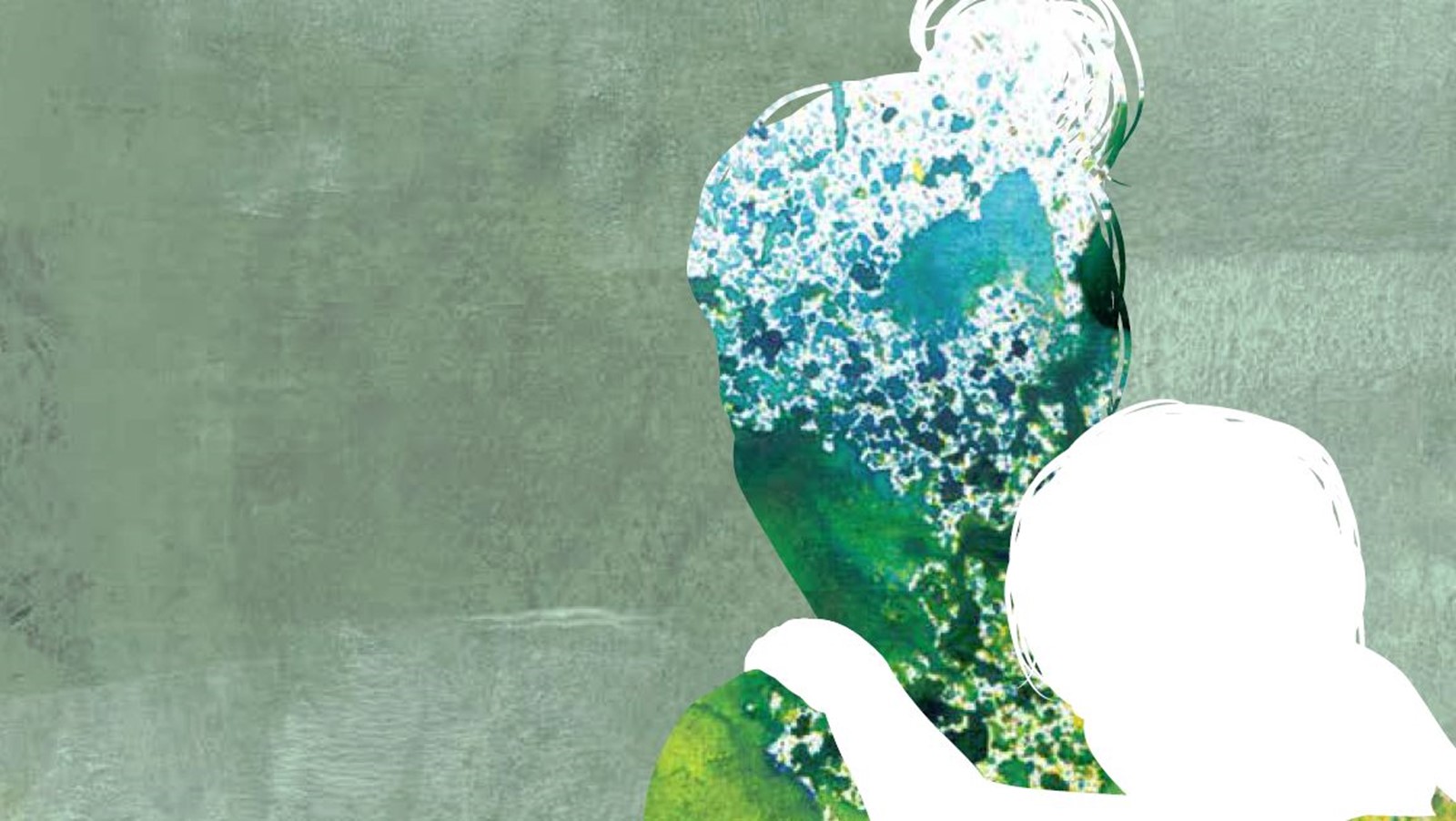In this issue
Features
Special focus
Relationship, the Buddha and psychotherapy
Franklyn Sills explores some influential figures in the development of core process psychotherapy
People
Honest unfolding
Geoffrey Hooper reflects on how therapy helped him and others to explore their sexuality
People
The healing power of nature – bereavement, grief and the life cycle
Caroline Jay describes her work with bereaved parents and children
People
Embodiment
Susan Groves explores the journey into the body
Perspectives
A meeting with Rembrandt: an old masterclass in congruence
Peter Cook discusses how a painting by Rembrandt helped him explore congruence
Perspectives
Blocks to inner healing (free article)
Jennie Cummings-Knight questions our openness to healing
Regulars
News
Interview: From action to passion
John Foskett answers questions about his life in counselling and involvement with BACP Spirituality

A pdf of this issue is available in the Thresholds archive
Welcome from the editor
In any new school of psychotherapy there are many past influences. I think it is vitally important to remember our ancestors and forerunners and reflect on their influence. Our relationship with our mothers sets the patterns that can continue throughout our lives. In this issue, Franklyn Sills’ special focus article describes some of the theoretical underpinnings of core process psychotherapy and the importance of early relationships. One of the figures he mentions, Frank Lake, came from a pastoral background. Our division, BACP Spirituality, has its roots in pastoral work.
Geoffrey Hooper’s fascinating article describes his search for insight into whether counselling and psychotherapy could offer better understanding of sexualities in faith traditions. His honest exploration offers an invitation for greater authenticity and deep questioning.
As the season turns to spring, a greater awareness of nature’s beauty may be more in the forefront of our minds. Caroline Jay’s work helping parents and children who are bereaved brings them in touch with nature. I heard Robert Macfarlane, author of the book Landmarks,1 discussing on BBC Radio 4 how certain words are disappearing from children’s active vocabularies. Words associated with nature are seen by some as no longer relevant to a modern day childhood.
I paid a recent visit to the William Blake exhibition at the Ashmolean Museum in Oxford. It was heartening to see the crowds of people on the final day. Taking in a whole exhibition can be daunting and overwhelming. One of the great pleasures of living in a city like Oxford is the opportunity to drop in to the museums and savour one’s favourite works of art. Many people turn to great works of art to connect with spirituality. A reflection on one painting by Rembrandt in the National Gallery provided inspiration and courage to Peter Cook.
For anyone working in the fields of counselling and psychotherapy, resourcing becomes a vital ingredient. We need to start from a place of resource, otherwise we are doing our clients a disservice. Jennie Cummings-Knight asks us to explore how we take care of ourselves.
I was delighted to read John Foskett’s humorous and honest reflections on his work and involvement with BACP Spirituality. He raises some important questions for those of us involved in spiritual-focused psychotherapies and I would like to thank him for the challenge and depth of his interview. I hope we will be able to address the issues he raises in future issues of Thresholds and would welcome contributions from people involved in the fields of practical and pastoral work of all religions.
I’m grateful to the contributors to Thresholds who remind me to stop and pay attention, to reflect on what I’m doing and to ask myself challenging questions. Often I find myself tangled up in deadlines and not spending moments appreciating my surroundings. When I do remember, I find myself treating myself to a half hour spent in a favourite museum or a walk along the river, enjoying the changes of season in nature even in a busy city environment. Whether you find inspiration through looking at works of art, working with your body or playing with your children, I do wish you a resourceful few months before the next issue of Thresholds. I would like to encourage our readers to write in response to articles that appear in the journal so that we can continue to learn from one another.
Amanda Anderson
Editor
thresholds.editorial@bacp.co.uk
References
1. Macfarlane R. Landmarks. London: Hamish Hamilton; 2015.
